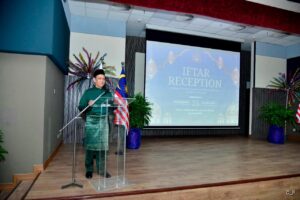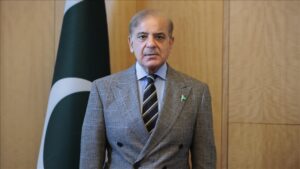Does Political Education Matter?

Political consciousness and education are interwoven threads that shape the trajectory of societies, offering pathways to love, peace, prosperity, unity, coexistence, and trust-building. Idealist visions of political education aim to transcend divisions and accelerate harmonious coexistence through learning. The medieval Islamic period under Caliph Umar ibn al-Khattab offers a profound example of governance deeply rooted in justice, accountability, and people-centered administration. Umar’s laws, emphasizing equity, inclusivity, and transparency, were revolutionary in promoting political consciousness among the masses. His leadership was grounded in consultation (Shura), ensuring that governance was participatory and responsive to the people’s needs. In many ways, Umar’s principles resonate with modern aspirations for political education. His focus on justice, resource distribution, and public welfare offers a model for contemporary societies seeking to balance authority with accountability. These ideals form the cornerstone of political consciousness, enabling citizens to critically engage with governance structures to foster equitable development.
Political education fosters a democratic consciousness rooted in the ideals of mutual respect and understanding. Countries like China have demonstrated how education, interlinked with political consciousness, can lead to rapid socio-economic transformations. China’s commitment to eradicating poverty, fostering innovation, and promoting collective well-being is a testament to the power of an educated populace guided by a shared vision. This model reflects the idealist approach where education does not merely impart skills but inculcates a sense of collective responsibility, essential for love and unity. Similarly, the Nordic countries, with their robust education systems, emphasize critical thinking and civic engagement. These nations have institutionalized political education as a tool for sustaining democratic values, ensuring that citizens are well-informed participants in governance. The integration of trust-building and coexistence in their educational frameworks underscores the transformative potential of political consciousness in achieving sustainable development.
In Pakistan, the political landscape has long suffered from a lack of structured political education. The Pakistan Awami Quwat (PAQ) has emerged as a pioneer in bridging this gap by establishing a comprehensive political education system. Through its Institute of Political Leadership, Political Leadership Academy, and Political Leadership School, PAQ has introduced programs tailored to different stages of leadership development. These initiatives aim to nurture local and national leaders capable of steering Pakistan towards sustainable development. By drawing lessons from global examples, PAQ’s model aligns with the broader ideals of fostering a democratic consciousness grounded in love, peace, and prosperity. The neoliberal version of political education, however, presents a contrasting perspective. Rooted in market-driven ideologies, neoliberal education prioritizes individual success over collective well-being. While it emphasizes efficiency and competition, it often marginalizes critical thinking and counter-hegemonic possibilities. Paulo Freire’s critique of such systems, as articulated in The Politics of Education: Culture, Power and Liberation, highlights the dehumanizing tendencies of neoliberal approaches. Freire’s advocacy for dialogue, critical thinking, and praxis—the interplay of reflection and action—offers a powerful antidote to the commodification of education.
Freire’s concept of conscientization, or critical consciousness, emphasizes the need for education to empower individuals to question and transform oppressive structures. In Pakistan, where socio-political inequalities are deeply entrenched, the adoption of Freirean principles can pave the way for a more equitable society. By fostering critical thinking and encouraging dialogue, political education can enable citizens to challenge hegemonic narratives and contribute to collective progress. Antonio Gramsci’s insights into the role of intellectuals in society further enrich the discourse on political education. Gramsci distinguishes between traditional intellectuals, who perpetuate the status quo, and organic intellectuals, who emerge from within the working class to challenge hegemonic power. Political education, in this context, becomes a tool for cultivating organic intellectuals who can articulate the aspirations of marginalized communities. Gramsci’s emphasis on counter-hegemony resonates with subaltern theory, which seeks to amplify the voices of the oppressed. Subaltern theory, as developed by scholars like Alf Gunvald Nilsen and Srila Roy, underscores the importance of recognizing and addressing the unique challenges faced by marginalized groups. In the context of political education, this involves creating spaces for dialogue and participation, enabling subaltern groups to assert their agency. The Pakistan Awami Quwat’s initiatives, with their focus on grassroots leadership, exemplify this approach by prioritizing the inclusion of diverse perspectives in decision-making processes.
Marxist dialectical materialism offers another critical lens for understanding political education. By examining the interplay between material conditions and social consciousness, this framework highlights the transformative potential of education in challenging existing power structures. Political education, informed by Marxist principles, can serve as a catalyst for social change by equipping individuals with the tools to analyze and address systemic inequalities. In Pakistan, where class disparities remain a significant barrier to progress, integrating Marxist perspectives into political education can help foster a more just and equitable society. The role of critical thinking, innovation, and dialogue in political education cannot be overstated. These elements are essential for nurturing a democratic consciousness that values diversity and coexistence. Henry Giroux, a prominent advocate of critical pedagogy, emphasizes the need for education to challenge authoritarianism and promote civic engagement. Giroux’s call for a radical reimagining of education aligns with the goals of political education initiatives like those undertaken by PAQ.
The connection between political education and subaltern theory is particularly evident in the work of Paulo Freire and Antonio Gramsci. Freire’s focus on dialogue and critical consciousness complements Gramsci’s emphasis on counter-hegemony and the role of organic intellectuals. Together, these perspectives provide a robust framework for understanding the transformative potential of political education in addressing the challenges of marginalized communities. Global examples further illustrate the impact of political education in fostering democratic consciousness. South Africa’s transition from apartheid to democracy, for instance, underscores the role of education in promoting reconciliation and coexistence. The Truth and Reconciliation Commission, complemented by educational initiatives, played a crucial role in fostering a culture of dialogue and understanding. Similarly, Brazil’s participatory budgeting model, rooted in the principles of Freirean pedagogy, highlights the potential of political education to empower citizens and promote collective decision-making. In times of populism, as discussed in Political Education in Times of Populism: Towards a Radical, the need for critical political education becomes even more pronounced. Populist movements often exploit divisions and undermine democratic values, making it imperative to cultivate a political consciousness that prioritizes unity and trust-building. Political education, informed by critical pedagogy and subaltern theory, can serve as a bulwark against the divisive tendencies of populism by fostering a culture of empathy and mutual respect.
The interplay between political education and counter-hegemonic possibilities is also evident in the work of scholars like Carmel Borg, Joseph Buttigieg, and Peter Mayo. Their exploration of Gramsci’s ideas in Gramsci and Education highlights the potential of education to challenge dominant narratives and promote social justice. By integrating these insights into political education, initiatives like those of PAQ can contribute to a more inclusive and equitable society.
In Pakistan, the establishment of comprehensive political education programs by Pakistan Awami Quwat represents a significant step towards addressing the gaps in political leadership. By drawing on global best practices and integrating critical pedagogical approaches, these initiatives aim to nurture a new generation of leaders capable of steering the country towards sustainable development. The emphasis on grassroots participation and the inclusion of diverse perspectives reflect a commitment to the ideals of love, peace, and unity. Educating for democratic consciousness requires a holistic approach that integrates critical thinking, dialogue, and innovation. By challenging oppressive structures and promoting inclusivity, political education can serve as a powerful tool for fostering coexistence and trust-building. The insights of scholars like Paulo Freire, Antonio Gramsci, and Henry Giroux provide valuable guidance for designing political education programs that prioritize the needs of marginalized communities.
Political education is a powerful force that has the potential to shape societies in profound ways. By strengthening a democratic consciousness rooted in love, peace, prosperity, unity, coexistence, and trust-building, it can contribute to the creation of a more just and equitable world. The success stories of countries like China, South Africa, and Brazil, coupled with the insights of critical pedagogues and political theorists, underscore the importance of integrating political education into the broader framework of sustainable development. For Pakistan, the initiatives undertaken by Pakistan Awami Quwat represent a promising step towards realizing this vision, offering a model for other nations to emulate. By embracing critical pedagogy and prioritizing the voices of the marginalized, political education can pave the way for a brighter and more inclusive future.


